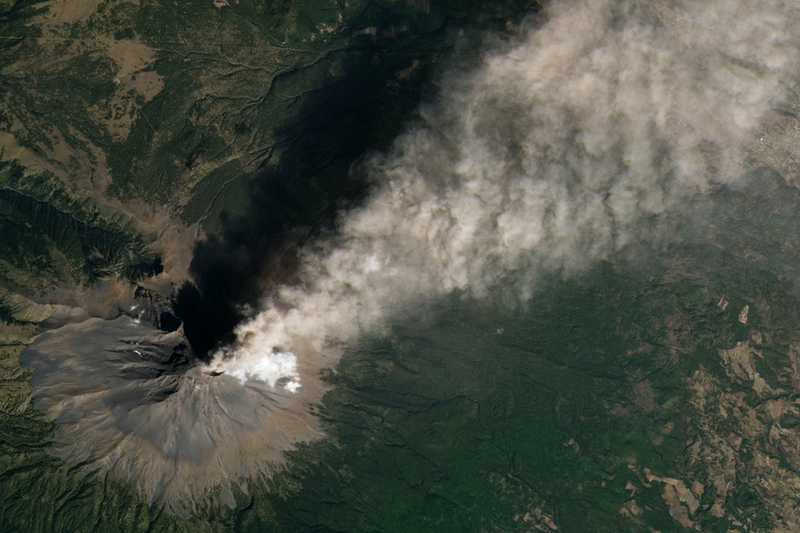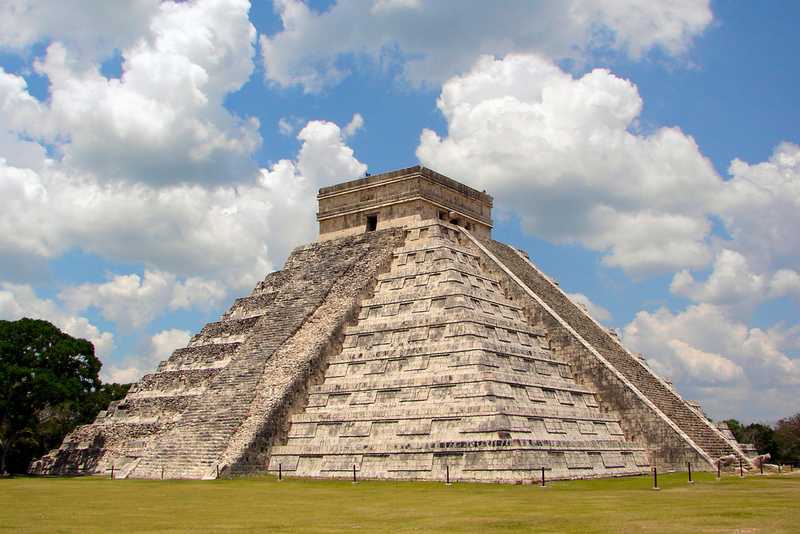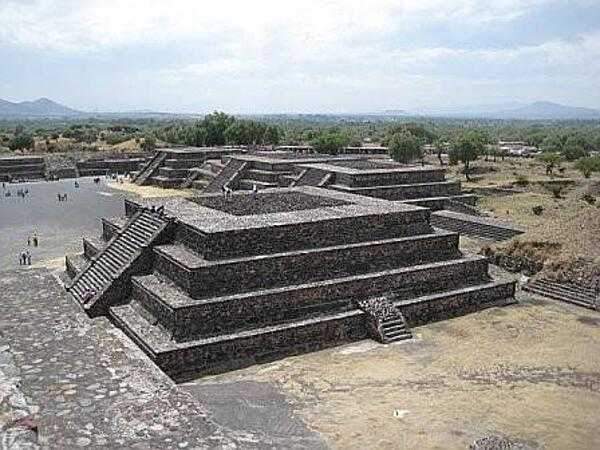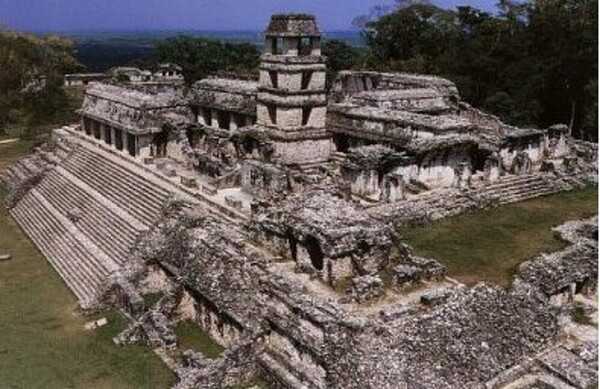Mexico - MX - MEX - MEX - North America
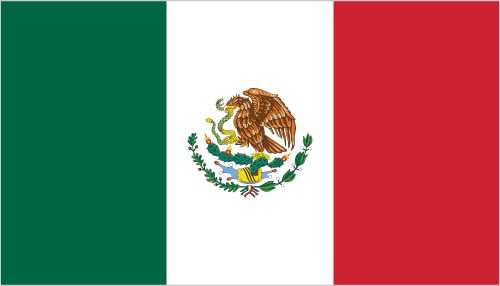
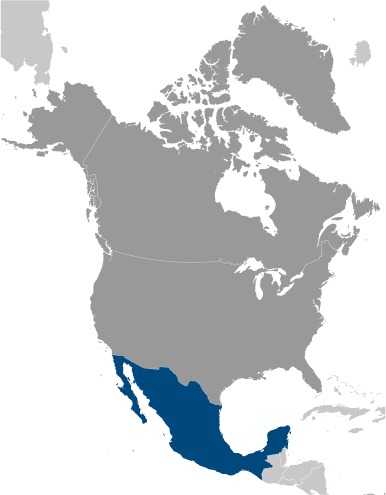
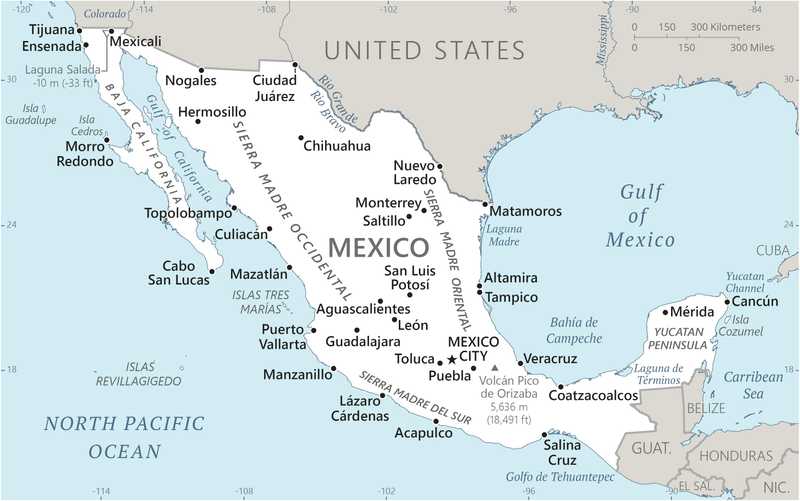
Mexico Images
Mexico Factbook Data
Diplomatic representation from the US
embassy: Paseo de la Reforma 305, Colonia Cuauhtémoc, 06500 Mexico, CDMX
mailing address: 8700 Mexico City Place, Washington DC 20521-8700
telephone: (011) [52]-55-5080-2000
FAX: (011) 52-55-5080-2005
email address and website:
ACSMexicoCity@state.gov
https://mx.usembassy.gov/
consulate(s) general: Ciudad Juárez, Guadalajara, Hermosillo, Matamoros, Mérida, Monterrey, Nogales, Nuevo Laredo, Tijuana
Age structure
15-64 years: 68.6% (male 43,651,105/female 45,983,174)
65 years and over: 8.2% (2024 est.) (male 4,600,228/female 6,103,611)
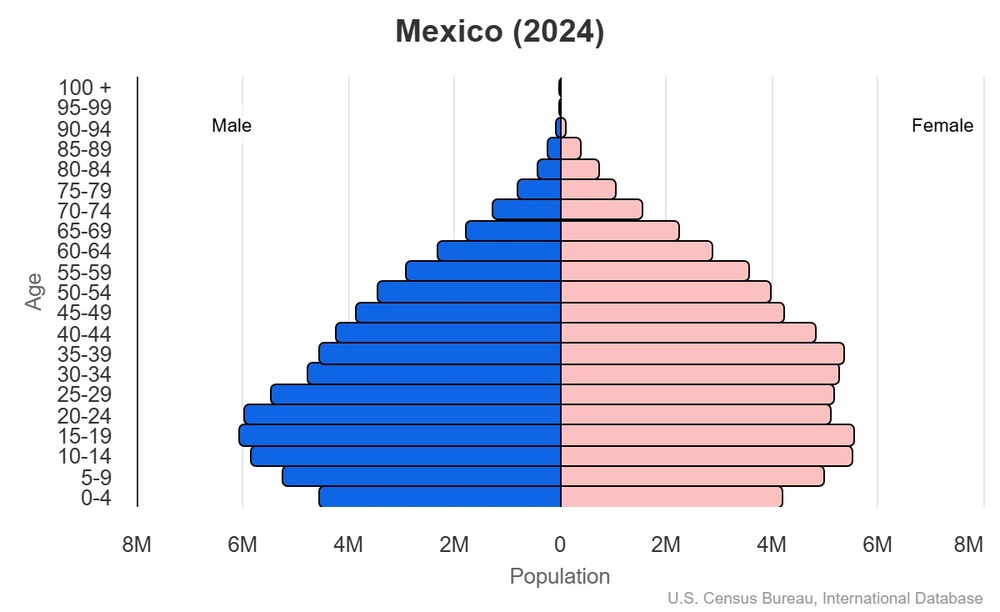
For additional information, please see the entry for Population pyramid on the Definitions and Notes page.
Geographic coordinates
Sex ratio
0-14 years: 1.06 male(s)/female
15-64 years: 0.95 male(s)/female
65 years and over: 0.75 male(s)/female
total population: 0.96 male(s)/female (2024 est.)
Natural hazards
volcanism: volcanic activity in the central-southern part of the country; the volcanoes in Baja California are mostly dormant; Colima (3,850 m) is Mexico's most active volcano and is responsible for periodic evacuations of nearby villagers; it has been deemed a Decade Volcano by the International Association of Volcanology and Chemistry of the Earth's Interior, worthy of study due to its explosive history and close proximity to human populations; Popocatepetl (5,426 m) poses a threat to Mexico City; other historically active volcanoes include Barcena, Ceboruco, El Chichon, Michoacan-Guanajuato, Pico de Orizaba, San Martin, Socorro, and Tacana; see note 2 under "Geography - note"
Area - comparative
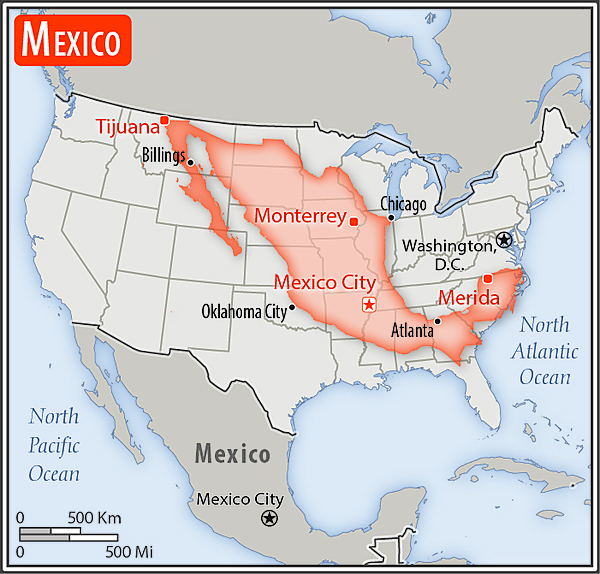
slightly less than three times the size of Texas
Military service age and obligation
note: as of 2023, women comprised about 10% of the active-duty Army, Air Force, and Navy, and about 14% of the National Guard
Background
Mexico was the site of several advanced Amerindian civilizations -- including the Olmec, Toltec, Teotihuacan, Zapotec, Maya, and Aztec -- until Spain conquered and colonized the area in the early 16th century. Administered as the Viceroyalty of New Spain for three centuries, it achieved independence early in the 19th century. Elections held in 2000 marked the first time since Mexican Revolution in 1910 that an opposition candidate -- Vicente FOX of the National Action Party (PAN) -- defeated the party in government, the Institutional Revolutionary Party (PRI). He was succeeded in 2006 by another PAN candidate Felipe CALDERON, but Enrique PEÑA NIETO regained the presidency for the PRI in 2012. Left-leaning anti-establishment politician and former mayor of Mexico City (2000-05) Andrés Manuel LÓPEZ OBRADOR, from the National Regeneration Movement (MORENA), became president in 2018.
The US-Mexico-Canada Agreement (USMCA, or T-MEC by its Spanish acronym) entered into force in 2020 and replaced its predecessor, the North American Free Trade Agreement (NAFTA). Mexico amended its constitution in 2019 to facilitate the implementation of the labor components of USMCA.
Mexico is currently the US's second-largest goods trading partner, after Canada. Ongoing economic and social concerns include low real wages, high underemployment, inequitable income distribution, and few advancement opportunities, particularly for the largely indigenous population in the impoverished southern states. Since 2007, Mexico's powerful transnational criminal organizations have engaged in a struggle to control criminal markets, resulting in tens of thousands of drug-related homicides and forced disappearances.
Environmental issues
note: the government considers the lack of clean water and deforestation as national security issues
International environmental agreements
signed, but not ratified: none of the selected agreements
Military expenditures
0.7% of GDP (2023 est.)
0.7% of GDP (2022 est.)
0.7% of GDP (2021 est.)
0.6% of GDP (2020 est.)
Population below poverty line
note: % of population with income below national poverty line
Household income or consumption by percentage share
highest 10%: 34.4% (2022 est.)
note: % share of income accruing to lowest and highest 10% of population
Exports - commodities
note: top five export commodities based on value in dollars
Exports - partners
note: top five export partners based on percentage share of exports
Administrative divisions
Agricultural products
note: top ten agricultural products based on tonnage
Military and security forces
Secretariat of National Defense (Secretaria de Defensa Nacional, SEDENA): Army (Ejercito), Mexican Air Force (Fuerza Aerea Mexicana, FAM), National Guard (Guardia Nacional); Secretariat of the Navy (Secretaria de Marina, SEMAR): Mexican Navy (Armada de Mexico (ARM), includes Naval Air Force (FAN), Mexican Naval Infantry Corps (Cuerpo de Infanteria de Marina, Mexmar or CIM))
Secretariat of Security and Civilian Protection/SEDENA: National Guard (2025)
note: the National Guard was formed in 2019 of personnel from the former Federal Police (disbanded in December 2019) and military police units of the Army and Navy
Budget
expenditures: $327.211 billion (2022 est.)
note: central government revenues (excluding grants) and expenses converted to US dollars at average official exchange rate for year indicated
Capital
geographic coordinates: 19 26 N, 99 08 W
time difference: UTC-6 (1 hour behind Washington, DC, during Standard Time)
daylight saving time: DST was permanently removed in October 2022
time zone note: Mexico has four time zones
etymology: name may derive from one of the Nahuatl (Aztec) names for the capital city, Metztlixihtlico, which probably meant "the center of the moon;" alternatively, it may come from Mexica, the original name of the Aztec people
Imports - commodities
note: top five import commodities based on value in dollars
Climate
Coastline
Constitution
amendment process: proposed by the Congress of the Union; passage requires approval by at least two thirds of the members present and approval by a majority of the state legislatures
Exchange rates
Exchange rates:
18.305 (2024 est.)
17.759 (2023 est.)
20.127 (2022 est.)
20.272 (2021 est.)
21.486 (2020 est.)
Executive branch
head of government: President Claudia SHEINBAUM Pardo (since 1 October 2024)
cabinet: Cabinet appointed by the president
election/appointment process: president directly elected by simple-majority popular vote for a single 6-year term
most recent election date: 2 June 2024
election results:
2024: Claudia SHEINBAUM Pardo elected president; percent of vote - Claudia SHEINBAUM Pardo (MORENA) 59.4%, Xóchitl GÁLVEZ Ruiz (PAN) 27.9%, Jorge Álvarez MÁYNEZ (MC) 10.4%, other 2.3%
2018: Andrés Manuel LÓPEZ OBRADOR elected president; percent of vote - Andrés Manuel LÓPEZ OBRADOR (MORENA) 53.2%, Ricardo ANAYA Cortés (PAN) 22.3%, José Antonio MEADE Kuribreña (PRI) 16.4%, Jaime RODRÍGUEZ Calderón (independent) 5.2%, other 2.9%
2012: Enrique PEÑA NIETO elected president; percent of vote - Enrique PEÑA NIETO (PRI) 38.2%, Andrés Manuel LÓPEZ OBRADOR (PRD) 31.6%, Josefina Eugenia VÁZQUEZ Mota (PAN) 25.4%, other 4.8%
expected date of next election: 2030
note: the president is both chief of state and head of government
Flag description
note: similar to the flag of Italy, which is shorter, has no emblem, and uses lighter shades of green and red
Illicit drugs
major illicit drug-producing and/or drug-transit country
major precursor-chemical producer (2025)
Independence
Industries
Judicial branch
judge selection and term of office: Supreme Court justices nominated by the president of the republic and approved by two-thirds vote of the members present in the Senate; justices serve 15-year terms; Electoral Tribunal superior and regional court judges nominated by the Supreme Court and elected by two-thirds vote of members present in the Senate; superior court president elected from among its members to hold office for a 4-year term; other judges of the superior and regional courts serve staggered, 9-year terms
subordinate courts: federal level includes circuit, collegiate, and unitary courts; state and district level courts
note: in April 2021, the Mexican congress passed a judicial reform which changed 7 articles of the constitution and preceded a new Organic Law on the Judicial Branch of the Federation
Land boundaries
border countries (3): Belize 276 km; Guatemala 958 km; US 3,155 km
Land use
arable land: 9.8% (2022 est.)
permanent crops: 1.5% (2022 est.)
permanent pasture: 38.1% (2022 est.)
forest: 33.7% (2022 est.)
other: 16.9% (2022 est.)
Legal system
Legislative branch
legislative structure: bicameral
note: as of the 2018 election, senators will be eligible for a second term and deputies up to 4 consecutive terms
Literacy
male: 96% (2020 est.)
female: 94% (2020 est.)
Maritime claims
contiguous zone: 24 nm
exclusive economic zone: 200 nm
continental shelf: 200 nm or to the edge of the continental margin
International organization participation
National holiday
Nationality
adjective: Mexican
Natural resources
Geography - note
note 2: the Sac Actun cave system at 348 km (216 mi) is the longest underwater cave in the world and the second longest cave worldwide, after Mammoth Cave in the United States (see "Geography - note" under United States)
note 3: the prominent Yucatán Peninsula that divides the Gulf of America from the Caribbean Sea is shared by Mexico, Guatemala, and Belize; on the northern coast of Yucatan near the town of Chicxulub lie the remnants of a massive asteroid or comet crater about 150 km (93 mi) in diameter and extending into the Gulf of America; the impact is believed to have initiated a worldwide climate disruption that caused a mass extinction of 75% of the earth's plant and animal species, including the non-avian dinosaurs
Economic overview
upper-middle-income economy; highly integrated with US via trade and nearshore manufacturing; weak domestic demand, fiscal consolidation, and trade uncertainty contributing to sluggish growth; low unemployment; challenges from income inequality, corruption, and cartel-based violence
Political parties
Institutional Revolutionary Party (Partido Revolucionario Institucional) or PRI
Labor Party (Partido del Trabajo) or PT
Mexican Green Ecological Party (Partido Verde Ecologista de México) or PVEM
Movement for National Regeneration (Movimiento Regeneración Nacional) or MORENA
National Action Party (Partido Acción Nacional) or PAN
Party of the Democratic Revolution (Partido de la Revolución Democrática) or PRD
Railways
standard gauge: 23,389 km (2017) 1.435-m gauge (27 km electrified)
Suffrage
Terrain
Government type
Country name
conventional short form: Mexico
local long form: Estados Unidos Mexicanos
local short form: Mexico
former: Mexican Republic, Mexican Empire
etymology: name may derive from one of the Nahuatl (Aztec) names for the capital city, Metztlixihtlico, which probably meant "the center of the moon;" alternatively, it may come from Mexica, the original name of the Aztec people
Location
Map references
Irrigated land
Diplomatic representation in the US
chancery: 1911 Pennsylvania Avenue NW, Washington, DC 20006
telephone: [1] (202) 728-1600
FAX: [1] (202) 728-1698
email address and website:
mexembusa@sre.gob.mx
https://embamex.sre.gob.mx/eua/index.php/en/
consulate(s) general: Atlanta (GA), Austin (TX), Boston (MA), Chicago (IL), Dallas (TX), Denver (GA), El Paso (TX), Houston (TX), Laredo (TX), Miami (FL), New York (NY), Nogales (AZ), Phoenix (AZ), Raleigh (NC), Sacramento (CA), San Antonio (TX), San Diego (CA), San Francisco (CA), San Jose (CA), San Juan (Puerto Rico)
consulate(s): Albuquerque (NM), Boise (ID), Brownsville (TX), Calexico (CA), Del Rio (TX), Detroit (MI), Douglas (AZ), Eagle Pass (TX), Fresno (CA), Indianapolis (IN), Kansas City (MO), Las Vegas (NV), Little Rock (AR), Los Angeles (CA), McAllen (TX), Milwaukee (WI), New Orleans (LA), Oklahoma City (OK), Omaha (NE), Orlando (FL), Oxnard (CA), Philadelphia (PA), Portland (OR), Presidio (TX), Salt Lake City (UT), San Bernardino (CA), Santa Ana (CA), Seattle (WA), St. Paul (MN), Tucson (AZ), Yuma (AZ)
Internet users
Internet country code
Refugees and internally displaced persons
IDPs: 386,000 (government's quashing of Zapatista uprising in 1994 in eastern Chiapas Region; drug cartel violence and government's military response since 2007; violence between and within indigenous groups) (2022)
stateless persons: 13 (2022)
GDP (official exchange rate)
note: data in current dollars at official exchange rate
Total renewable water resources
School life expectancy (primary to tertiary education)
male: 14 years (2022 est.)
female: 15 years (2022 est.)
Urbanization
rate of urbanization: 1.4% annual rate of change (2020-25 est.)
Broadcast media
Drinking water source
urban: 100% of population
rural: 98.3% of population
total: 99.7% of population
unimproved:
urban: 0% of population
rural: 1.7% of population
total: 0.3% of population (2020 est.)
National anthem(s)
lyrics/music: Francisco Gonzalez BOCANEGRA/Jaime Nuno ROCA
history: adopted 1943, in use since 1854; also known as "Mexicanos, al grito de Guerra" (Mexicans, to the War Cry); according to tradition, BOCANEGRA, an accomplished poet, did not want to submit lyrics to a national anthem contest, but his fiancée locked him in a room and refused to release him until the lyrics were completed
Major urban areas - population
International law organization participation
Physician density
Hospital bed density
National symbol(s)
Mother's mean age at first birth
Contraceptive prevalence rate
GDP - composition, by end use
government consumption: 11.2% (2024 est.)
investment in fixed capital: 24.2% (2024 est.)
investment in inventories: 0% (2024 est.)
exports of goods and services: 36.8% (2024 est.)
imports of goods and services: -37.9% (2024 est.)
note: figures may not total 100% due to rounding or gaps in data collection
Dependency ratios
youth dependency ratio: 33.9 (2024 est.)
elderly dependency ratio: 11.9 (2024 est.)
potential support ratio: 8.4 (2024 est.)
Citizenship
citizenship by descent only: yes
dual citizenship recognized: not specified
residency requirement for naturalization: 5 years
Population distribution
Electricity access
electrification - urban areas: 99.8%
electrification - rural areas: 100%
Civil aircraft registration country code prefix
Sanitation facility access
urban: 99.9% of population
rural: 96.4% of population
total: 99.2% of population
unimproved:
urban: 0.1% of population
rural: 3.6% of population
total: 0.8% of population (2020 est.)
Ethnic groups
note: Mexico does not collect census data on ethnicity
Religions
Languages
major-language sample(s):
La Libreta Informativa del Mundo, la fuente indispensable de información básica. (Spanish)
The World Factbook, the indispensable source for basic information.
Imports - partners
note: top five import partners based on percentage share of imports
Elevation
lowest point: Laguna Salada -10 m
mean elevation: 1,111 m
Military - note
Health expenditure
10.4% of national budget (2022 est.)
Military and security service personnel strengths
Military equipment inventories and acquisitions
Total water withdrawal
industrial: 8.56 billion cubic meters (2020 est.)
agricultural: 67.83 billion cubic meters (2020 est.)
Waste and recycling
municipal solid waste recycled annually: 2.655 million tons (2013 est.)
percent of municipal solid waste recycled: 5% (2013 est.)
Average household expenditures
on alcohol and tobacco: 2.3% of household expenditures (2023 est.)
Air pollutants
carbon dioxide emissions: 486.41 megatons (2016 est.)
methane emissions: 135.77 megatons (2020 est.)
Major aquifers
Major watersheds (area sq km)
Pacific Ocean drainage: (Gulf of California) Colorado (703,148 sq km)
Major lakes (area sq km)
salt water lake(s): Laguna de Terminos - 1,550 sq km
Major rivers (by length in km)
note: [s] after country name indicates river source; [m] after country name indicates river mouth
National heritage
selected World Heritage Site locales: Historic Mexico City (c); Earliest 16th-Century Monasteries on the Slopes of Popocatepetl (c); Teotihuacan (c); Whale Sanctuary of El Vizcaino (n); Monarch Butterfly Biosphere Reserve (n); Tehuacán-Cuicatlán Valley (m); Historic Puebla (c); El Tajin (c); Historic Tlacotalpan (c); Historic Oaxaca and Monte Albán (c); Palenque (c); Chichen-Itza (c); Uxmal (c)
Child marriage
women married by age 18: 20.7% (2018)
Coal
consumption: 15.132 million metric tons (2023 est.)
exports: 4,000 metric tons (2023 est.)
imports: 8.809 million metric tons (2023 est.)
proven reserves: 1.16 billion metric tons (2023 est.)
Electricity generation sources
nuclear: 3.2% of total installed capacity (2023 est.)
solar: 4.2% of total installed capacity (2023 est.)
wind: 5.7% of total installed capacity (2023 est.)
hydroelectricity: 5.2% of total installed capacity (2023 est.)
geothermal: 1.1% of total installed capacity (2023 est.)
biomass and waste: 1% of total installed capacity (2023 est.)
Natural gas
consumption: 97.118 billion cubic meters (2023 est.)
exports: 27.92 million cubic meters (2023 est.)
imports: 64.289 billion cubic meters (2023 est.)
proven reserves: 180.322 billion cubic meters (2021 est.)
Petroleum
refined petroleum consumption: 1.741 million bbl/day (2024 est.)
crude oil estimated reserves: 5.786 billion barrels (2021 est.)
Terrorist group(s)
note: details about the history, aims, leadership, organization, areas of operation, tactics, targets, weapons, size, and sources of support of the group(s) appear(s) in the Terrorism reference guide
Gross reproduction rate
Currently married women (ages 15-49)
Remittances
3.7% of GDP (2023 est.)
4.2% of GDP (2022 est.)
note: personal transfers and compensation between resident and non-resident individuals/households/entities
Nuclear energy
Net capacity of operational nuclear reactors: 1.55GW (2025 est.)
Percent of total electricity production: 4.9% (2023 est.)
Space program overview
note: further details about the key activities, programs, and milestones of the country’s space program, as well as government spending estimates on the space sector, appear in the Space Programs reference guide
Space agency/agencies
Geoparks
global geoparks and regional networks: Comarca Minera, Hidalgo; Mixteca Alta, Oaxaca (2023)
Ports
large: 0
medium: 7
small: 10
very small: 14
size unknown: 4
ports with oil terminals: 21
key ports: Acapulco, Ensenada, Manzanillo, Mazatlan, Tampico, Tuxpan, Veracruz
Legislative branch - lower chamber
number of seats: 500 (all directly elected)
electoral system: mixed system
scope of elections: full renewal
term in office: 3 years
most recent election date: 6/2/2024
parties elected and seats per party: National Regeneration Movement (MORENA) (236); Ecologist Green Party of Mexico (PVEM) (77); National Action Party (PAN) (72); Labour Party (PT) (51); Institutional Revolutionary Party (PRI) (35); Citizens' Movement (MC) (27); Other (2)
percentage of women in chamber: 50.2%
expected date of next election: June 2027
Legislative branch - upper chamber
number of seats: 128 (all directly elected)
electoral system: mixed system
scope of elections: full renewal
term in office: 6 years
most recent election date: 6/2/2024
parties elected and seats per party: National Regeneration Movement (MORENA) (60); National Action Party (PAN) (22); Institutional Revolutionary Party (PRI) (16); Ecologist Green Party of Mexico (PVEM) (14); Labour Party (PT) (9); Other (7)
percentage of women in chamber: 50%
expected date of next election: June 2030
National color(s)
Labor force
note: number of people ages 15 or older who are employed or seeking work
Youth unemployment rate (ages 15-24)
male: 5.2% (2024 est.)
female: 6.1% (2024 est.)
note: % of labor force ages 15-24 seeking employment
Net migration rate
Median age
male: 28.8 years
female: 32.7 years
Debt - external
note: present value of external debt in current US dollars
Maternal mortality ratio
Reserves of foreign exchange and gold
$214.317 billion (2023 est.)
$201.119 billion (2022 est.)
note: holdings of gold (year-end prices)/foreign exchange/special drawing rights in current dollars
Public debt
note: central government debt as a % of GDP
Total fertility rate
Unemployment rate
2.8% (2023 est.)
3.3% (2022 est.)
note: % of labor force seeking employment
Population
male: 63,899,138
female: 66,840,789
Carbon dioxide emissions
from coal and metallurgical coke: 32.087 million metric tonnes of CO2 (2023 est.)
from petroleum and other liquids: 228.279 million metric tonnes of CO2 (2023 est.)
from consumed natural gas: 180.684 million metric tonnes of CO2 (2023 est.)
Area
land: 1,943,945 sq km
water: 20,430 sq km
Taxes and other revenues
note: central government tax revenue as a % of GDP
Real GDP (purchasing power parity)
$2.842 trillion (2023 est.)
$2.751 trillion (2022 est.)
note: data in 2021 dollars
Airports
Infant mortality rate
male: 13.4 deaths/1,000 live births
female: 10.9 deaths/1,000 live births
Telephones - mobile cellular
subscriptions per 100 inhabitants: 100 (2022 est.)
Gini Index coefficient - distribution of family income
note: index (0-100) of income distribution; higher values represent greater inequality
Inflation rate (consumer prices)
5.5% (2023 est.)
7.9% (2022 est.)
note: annual % change based on consumer prices
Current account balance
-$5.611 billion (2023 est.)
-$17.701 billion (2022 est.)
note: balance of payments - net trade and primary/secondary income in current dollars
Real GDP per capita
$21,900 (2023 est.)
$21,400 (2022 est.)
note: data in 2021 dollars
Broadband - fixed subscriptions
subscriptions per 100 inhabitants: 21 (2023 est.)
Tobacco use
male: 21.8% (2025 est.)
female: 6.3% (2025 est.)
Obesity - adult prevalence rate
Energy consumption per capita
Death rate
Birth rate
Electricity
consumption: 332.042 billion kWh (2023 est.)
exports: 1.97 billion kWh (2023 est.)
imports: 4.863 billion kWh (2023 est.)
transmission/distribution losses: 45.47 billion kWh (2023 est.)
Merchant marine
by type: bulk carrier 4, general cargo 11, oil tanker 32, other 627
Children under the age of 5 years underweight
Imports
$674.695 billion (2023 est.)
$672.914 billion (2022 est.)
note: balance of payments - imports of goods and services in current dollars
Exports
$649.729 billion (2023 est.)
$630.347 billion (2022 est.)
note: balance of payments - exports of goods and services in current dollars
Heliports
Telephones - fixed lines
subscriptions per 100 inhabitants: 20 (2023 est.)
Alcohol consumption per capita
beer: 3.72 liters of pure alcohol (2019 est.)
wine: 0.19 liters of pure alcohol (2019 est.)
spirits: 0.19 liters of pure alcohol (2019 est.)
other alcohols: 0.15 liters of pure alcohol (2019 est.)
Life expectancy at birth
male: 71.6 years
female: 77.7 years
Real GDP growth rate
3.3% (2023 est.)
3.7% (2022 est.)
note: annual GDP % growth based on constant local currency
Industrial production growth rate
note: annual % change in industrial value added based on constant local currency
GDP - composition, by sector of origin
industry: 31.6% (2024 est.)
services: 58.2% (2024 est.)
note: figures may not total 100% due to non-allocated consumption not captured in sector-reported data
Education expenditure
15.9% national budget (2021 est.)
